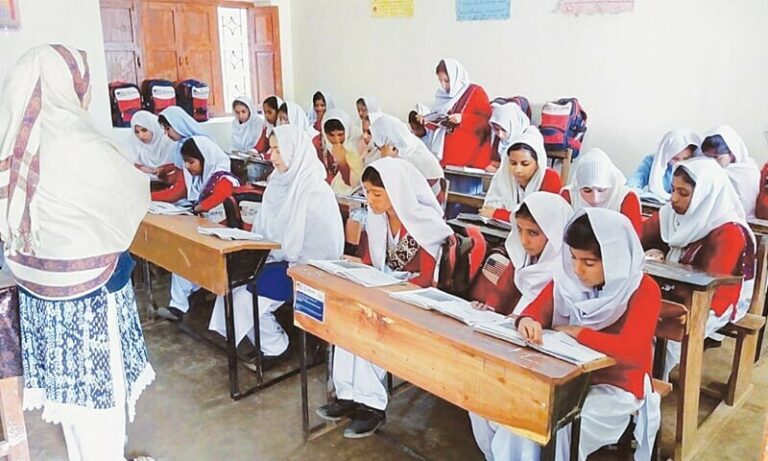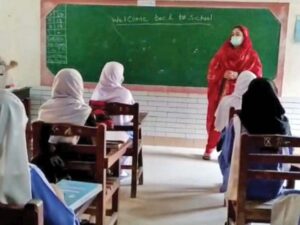The government’s plan to hand over control of 13,000 public schools to the Punjab Education Foundation (PEF) and Punjab Education Initiatives Management Authority (PEIMA) has been severely criticized by the Punjab Teachers Joint Action Committee, which describes the move as an attempt to outsource the management of the educational system.
Concerns have been raised by committee leaders Chaudhry Sarfraz, Bashir Warraich, Rana Liaqat, Kashif Shahzad Chaudhry, Chaudhry Safdar, and Malik Amjad, who believe that the restructuring proposal will lead to improvements in the state of education. They emphasized that 120,000 teaching positions remain unfilled as a result of the previous and caretaker governments’ inability to hire even one teacher during the preceding six years. A few committed teachers have kept up primary school attendance of up to 100 students in spite of personnel shortages.
The PEF and PEIMA were criticized by the committee leaders, who described them failed models that had caused 12,000 educational institutions under their control to suffer from a lack of timely funding. They emphasized that if they added 13,000 more schools to their responsibility, already-existing issues would get worse.They proposed allowing local communities to hire teachers through school councils, similar to the afternoon school hiring procedure, if the government could hire teachers on a contract. In light of the extreme inflation, the committee questioned how it would be possible to provide a high-quality education at Rs 600.
The committee recommended that the government take accountability by hiring more teachers, paying staff members a 100% increase, and allowing leave encashment to be used again. They said that the All Government Employees Grand Alliance Punjab would organize a nonviolent protest demonstration on May 29 at noon in front of the Punjab Assembly.
The province government, led by Maryam Nawaz, plans to turn over 13,000 underperforming public schools to non-governmental organizations (NGOs) in an attempt to enact reforms, which has sparked criticism. The chief minister made the decision to put these reforms into effect within the next three months during a meeting to discuss the School Education Reforms Programme. A plan to collaborate with the private sector to monitor the performance of 136 underperforming schools was also covered at the conference.




